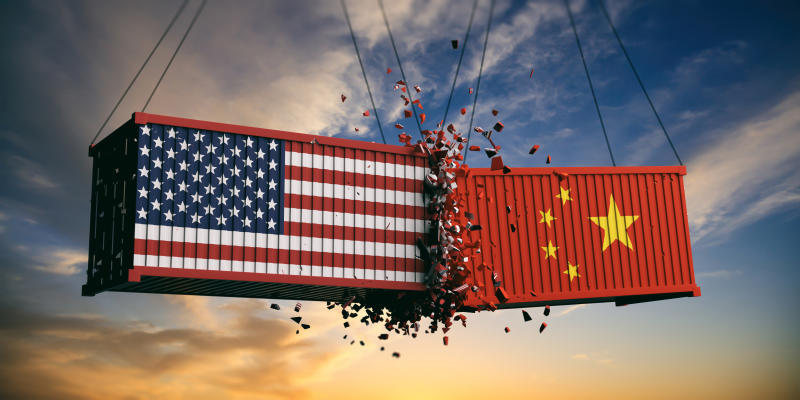Morgan Stanley warns tariffs could 'likely lead to an economic recession'
 The latest tit-for-tat tariffs on Chinese imports have already taken a wrecking ball to stocks’ gains. Now, some analysts are bracing for the impact to trickle out to the broader economy.
The latest tit-for-tat tariffs on Chinese imports have already taken a wrecking ball to stocks’ gains. Now, some analysts are bracing for the impact to trickle out to the broader economy.
“The potential cost headwinds of 25% tariffs on on all Chinese exports to the U.S. could be in the range of 1.0-1.5% of the index’s net income,” Morgan Stanley analyst Michael Wilson wrote in a note Monday. “But demand destruction and ailing confidence increase the potential impacts well beyond just higher costs and would likely lead to an economic recession in our view.”
Late last week, the Trump administration raised the rate of tariffs on $200 billion worth of Chinese imports to 25%, and announced that further levies on another $300 billion in imports would be forthcoming. Trump has claimed repeatedly that China “broke the deal” the two sides had been working toward over the past several months, leading to the use of tariffs to try and extract further concessions.
On Monday, Beijing retaliated by announcing plans to set a tariff rate as high as 25% on a portion of $60 billion worth of U.S.-made goods, effective June 1. The news sent contracts on the Dow down more than 500 points in pre-market trading.
‘Volatility may not subside’
In the past, Wilson has repeatedly highlighted the likelihood of an “earnings recession,” or a contraction in S&P 500 companies’ bottom-line growth. With this thesis in mind, he’s maintained that the S&P 500, at its near-3,000 level approached earlier this year, was probably overvalued.
“While last week’s correction helped move the risk-reward closer to balance, we think there is likely more downside than upside based on our high conviction view that (next twelve month) earnings expectations remain too high by 5-10%,” Wilson said.
Last week, the S&P 500 posted a weekly loss of 2.18% as concerns about trade tensions simmered. However, the index was still up about 15% for the year-to-date.
But earnings recession aside, an increase in the prospect of increased trade tensions has also pulled up the probability of a full-blown economic recession, Wilson said.
“There are many signs that the risk of a recession in the next 12 months is rising,” Wilson said. He pointed to proprietary indicators Morgan Stanley’s Cross Assets team tracks, which last month “officially tipped over into the ‘downturn’ phase which has always preceded an economic recession.”
“While an economic recession doesn’t always ensue after the indicator signals downturn, on average equities tend to underperform treasuries over the next twelve months by about 6%, indicating we have little upside until either prices fall back to more reasonable levels or this indicator reverses,” Wilson said.
Other analysts have also recently begun to highlight the potential economic damage of a protracted U.S.-China trade war. According to an analysis by Societe Generale’s Klaus Baader, if the current tariffs remain in place, GDP “can be expected to be hit to the tune of 0.5% in China, 0.25% in the U.S., and 0.15% globally.”
“If the U.S. levies tariffs on all Chinese goods, and China retaliates, these losses could easily double,” Baader said. “Confident effects and financial market reactions also argue for a downside balance of risks.”
While the prospects of a near-term trade deal appear off the table for now amid a trade talk deadlock, a breakthrough would be unlikely to immediately reverse the choppiness in trading seen over the past several sessions. In a note last week, Wilson noted that “negative surprises” like the re-escalation of U.S.-China trade tensions can have greater negative price impacts than fundamentals might suggest, as such unexpected occurrences can leave a lasting impact on sentiment and outlooks.
“Volatility may not subside as quickly as some might think even if there is a proper de-escalation of these trade deal risks,” Wilson said.
—
Emily McCormick is a reporter for Yahoo Finance. Follow her on Twitter: @emily_mcck




Post a Comment